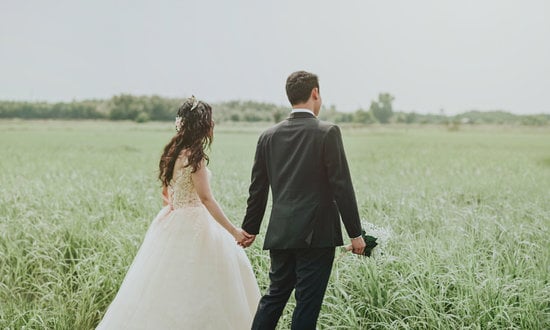Planning a wedding is an exciting yet challenging endeavor, and one of the most crucial aspects of the planning process is knowing exactly how many guests will be in attendance. This is where the RSVP (Répondez s’il vous plaît) process comes into play. Understanding how long before a wedding guests should RSVP is essential for couples to ensure a seamless and stress-free celebration.
By providing an accurate headcount, the couple can better plan for seating, catering, and other important details. In this article, we will delve into the significance of RSVPs and explore the recommended timeline for guests to respond to wedding invitations.
The RSVP process is a longstanding tradition in wedding etiquette, serving as a means for guests to confirm their attendance at the celebration. Whether through traditional RSVP cards or online options, this process allows couples to gather essential information about who will be present on their special day.
Setting an appropriate RSVP date involves careful consideration of various factors such as venue capacity and catering requirements. Without an accurate headcount, important details like seating arrangements and food preparation could be significantly impacted.
As such, it is essential for guests to understand the importance of promptly responding to wedding invitations. The failure to RSVP not only affects the couple’s planning but also demonstrates a lack of consideration for their efforts in organizing a memorable event. To avoid potential challenges and inconveniences, both couples sending out invitations and guests receiving them must adhere to proper RSVP etiquette and timelines.
Understanding the RSVP Process
When it comes to planning a wedding, having an accurate headcount of guests is crucial for several reasons. It not only helps the couple and their vendors plan for catering and seating arrangements, but it also impacts budgeting for the event. Understanding how long before a wedding guests should RSVP is essential in ensuring that all these logistics are arranged smoothly.
The traditional process for RSVPing to a wedding invitation involves responding to the RSVP card included with the invite. This card typically includes a pre-stamped and addressed return envelope, making it convenient for guests to indicate whether they will be attending or not. In recent years, many couples have also included an option for online RSVPs, allowing guests to respond digitally through a wedding website or email.
Setting an appropriate RSVP date is important as it gives guests ample time to check their schedules and make arrangements to attend or decline. Factors such as venue capacity and catering requirements play a significant role in determining this date. Without knowing how many guests will be attending, it becomes challenging for couples to finalize details such as seating charts and meal choices, potentially impacting the overall experience of the event.
- Etiquette for Guests
- Discuss the etiquette and expectations for guests when it comes to RSVPing to a wedding invitation
- Address common misconceptions or misunderstandings about the RSVP process
- Considerations for Setting an RSVP Date
- Factors to consider when determining the RSVP date, such as venue capacity and catering requirements
- The potential impact of not having an accurate headcount on wedding planning and budgeting
- Recommended Timeline for RSVPing
- Provide a general guideline for how long before a wedding guests should RSVP
- Offer tips for communicating the RSVP deadline to guests effectively
Considerations for Setting an RSVP Date
When it comes to determining the RSVP date for a wedding, there are several important considerations that couples should take into account. One of the primary factors to consider is the capacity of the wedding venue. Knowing how many people will be attending is crucial for seating arrangements and ensuring that the venue can accommodate all of the guests.
Additionally, catering requirements play a significant role in setting an RSVP date. The caterer will need to know the final headcount well in advance in order to prepare enough food and drinks for everyone.
Another consideration for setting an RSVP date is the impact on wedding planning and budgeting. Without an accurate headcount, couples may struggle with making important decisions such as selecting the right size of cake, determining the amount of seating and decor needed, and managing overall expenses. Not having a clear idea of how many guests will be attending can lead to overestimating or underestimating resources, leading to potential wastage or last-minute scrambling.
Factors Affecting RSVP Date
In considering when guests should RSVP before a wedding, keep in mind factors such as travel arrangements, accommodations, and other commitments that guests may need to plan for. Giving guests enough time to respond not only helps couples with their planning but also shows consideration for their attendees’ schedules.
Importance of Setting a Clear Deadline
It’s essential for couples to communicate a clear deadline for RSVPs to their guests. This provides both parties with a structure and timeline for planning purposes. By establishing firm expectations around when responses are due, it can help mitigate any misunderstandings or difficulties down the line.
Etiquette for Guests
When it comes to RSVPing for a wedding, guests play a crucial role in ensuring that the couple can properly plan and budget for their big day. It is important for guests to understand the etiquette and expectations surrounding RSVPs to wedding invitations.
Understanding the Significance
Guests should be aware of how their RSVP impacts the couple’s wedding planning process. By providing an accurate headcount, guests are assisting the couple in making important decisions regarding seating arrangements, catering, and overall logistics for their special day. Failing to RSVP or providing an unreliable response can create unnecessary stress for the couple as they try to finalize their wedding preparations.
Expectations and Responsiveness
Guests should respond promptly upon receiving a wedding invitation, especially if an RSVP date is specified. It is considerate to promptly confirm attendance or regrets through the provided method on or before the specified deadline. Additionally, it is essential for guests to provide their response in a clear and concise manner. Any dietary restrictions or special requests should also be communicated at this time to ensure the couple can accommodate those needs effectively.
Common Misunderstandings
Some guests may have misconceptions about the importance of RSVPing to a wedding invitation. It is important for guests to understand that failing to respond or waiting until closer to the event may place unnecessary strain on the couple’s planning process.
It can also result in additional costs if last-minute adjustments need to be made due to unaccounted for guests. By understanding these common misunderstandings about RSVP etiquette, guests can ensure that they are respectful and considerate towards the couple’s needs during this exciting time.
Recommended Timeline for RSVPing
When it comes to planning a wedding, having an accurate headcount of guests is crucial for various aspects of the event, including seating arrangements, catering, and overall logistics. One of the key considerations in ensuring an accurate headcount is setting a reasonable deadline for guests to RSVP.
Many couples wonder: how long before a wedding should guests RSVP? Understanding the recommended timeline for RSVPing can help streamline the planning process and alleviate potential stress for both the couple and their guests.
Here are some factors to consider when determining how long before a wedding guests should RSVP:
- Venue capacity: Some venues have limitations on the number of guests they can accommodate, so it’s important to set an RSVP deadline that allows enough time to finalize the guest list and make any necessary adjustments.
- Catering requirements: Caterers typically require a final headcount well in advance of the wedding date. Knowing how many guests will be attending is essential for planning meals, beverages, and any special dietary accommodations.
- Logistics: Setting a reasonable timeline for RSVPing also takes into account factors such as travel arrangements, accommodations, and other logistical details that may impact guests’ ability to confirm their attendance.
Based on these considerations, it’s generally recommended that couples request RSVPs from their guests approximately 3-4 weeks before the wedding date. This timeframe allows enough time for guests to finalize their plans and communicate their attendance or regrets to the couple. Additionally, it provides couples with ample time to make any necessary arrangements based on the confirmed headcount.
In communicating the RSVP deadline to their guests, couples may include this information on the invitation itself or through additional communication channels such as wedding websites or save-the-date cards. Providing clear instructions and reminders can help ensure that guests adhere to the requested timeline for RSVPing. By understanding how long before a wedding guests should RSVP and effectively communicating this information, couples can better navigate the planning process and ensure that their special day runs smoothly.
Handling Late RSVPs
When it comes to managing RSVPs for a wedding, there is always the possibility of receiving late responses from guests. This can pose a challenge for couples who are trying to finalize their headcount and make necessary arrangements with vendors. So, how long before a wedding should guests RSVP? While traditional etiquette suggests that RSVPs should be sent back 2-3 weeks before the event, many couples choose to set their deadline even earlier to allow for any unexpected delays.
It’s essential for couples to communicate their RSVP deadline clearly on their invitations and wedding website. Providing this information in advance gives guests a fair amount of time to respond and helps the couple plan accordingly. Couples may also want to consider following up with guests who have not responded by the specified date, as this can help prevent any last-minute surprises.
Late RSVPs can present logistical challenges, especially when it comes to finalizing seating arrangements and catering orders. Couples may need to work closely with their vendors to accommodate additional guests after the RSVP deadline has passed, which can result in added stress and potential extra costs if not planned for in advance.
| RSVP Handling Tips | Details |
|---|---|
| Set an early RSVP deadline | This allows time for follow-ups and adjustments. |
| Communicate effectively | Couples should clearly convey the importance of timely RSVPs. |
| Prepare for unexpected late responses | Couples should discuss contingency plans with their vendors. |
Consequences of Not RSVPing
Failure to RSVP for a wedding can have significant consequences for both the couple planning the event and for the guests themselves. When guests neglect to RSVP by the specified deadline, it can create unnecessary stress and challenges for the soon-to-be-married couple. Without an accurate headcount, the couple may struggle to finalize important details such as seating arrangements, catering orders, and overall logistics for the wedding day.
From a budgeting perspective, not receiving timely RSVPs can also impact the couple’s financial planning. A larger-than-expected guest count can result in additional costs for food, beverages, and other accommodations. Conversely, if fewer guests than anticipated RSVP, it could lead to wasted resources that were pre-ordered based on an inaccurate estimate.
Furthermore, for guests who fail to RSVP in a timely manner or at all, there are potential consequences as well. They may miss out on attending the wedding altogether if the couple has to strictly enforce their RSVP deadline in order to proceed with finalizing plans. This is especially true if space constraints at the venue prevent last-minute adjustments.
In some cases, not responding to a wedding invitation can strain relationships and cause hurt feelings between both parties involved. Therefore, it is essential for both couples sending invitations and guests receiving them to understand how vital timely RSVPs are in ensuring a successful and stress-free wedding day.
Final Thoughts and Tips
In conclusion, the RSVP process is a crucial aspect of wedding planning that allows couples to accurately prepare for their big day. By knowing how long before a wedding guests should RSVP, couples can ensure that they have an accurate headcount for their venue and catering needs. It also helps in managing the budget effectively and avoiding any last-minute stress.
It is important for guests to understand the etiquette and expectations surrounding RSVPing to a wedding invitation. Communicating the RSVP deadline clearly and providing a reasonable timeline for guests to respond can help in ensuring a smooth planning process for the couple. Additionally, handling late RSVPs and unexpected guests can be challenging, so it is essential for both parties to be considerate and understanding throughout the process.
Ultimately, the consequences of not RSVPing can have a significant impact on a couple’s wedding planning and budget. From potential challenges in accommodating last-minute guests to added inconvenience and stress, it is clear that timely RSVPs play a vital role in ensuring a successful and stress-free wedding day.
By following recommended timelines for RSVPing and adhering to proper etiquette, both couples sending invitations and guests receiving them can contribute to making the wedding planning process as seamless as possible.
Frequently Asked Questions
When Should You Remind Guests to RSVP?
It is important to remind guests to RSVP a few weeks before the event, typically around 2-3 weeks prior. This gives them enough time to finalize their plans and respond to the invitation.
Is 3 Months Too Early to Send Out Wedding Invitations?
Sending out wedding invitations 3 months in advance is not too early, especially if you have guests who will need to make travel arrangements. It allows them ample time to plan and secure their attendance.
Should You Put an RSVP Date on a Wedding Invitation?
Yes, it is essential to include an RSVP date on a wedding invitation. This helps the couple finalize the headcount for the event and make necessary arrangements with vendors such as catering and seating. It also provides guests with a clear deadline for their response.

I have been involved in marriages for over 20 years helping couples and singles understand more about them.



![How Long Before Wedding RSVP How Long Before Wedding RSVP: Please Respond by [Date] to Help Us Plan](https://www.marriagespirit.com/wp-content/uploads/2023/12/wedding-1100-150x150.jpg)

